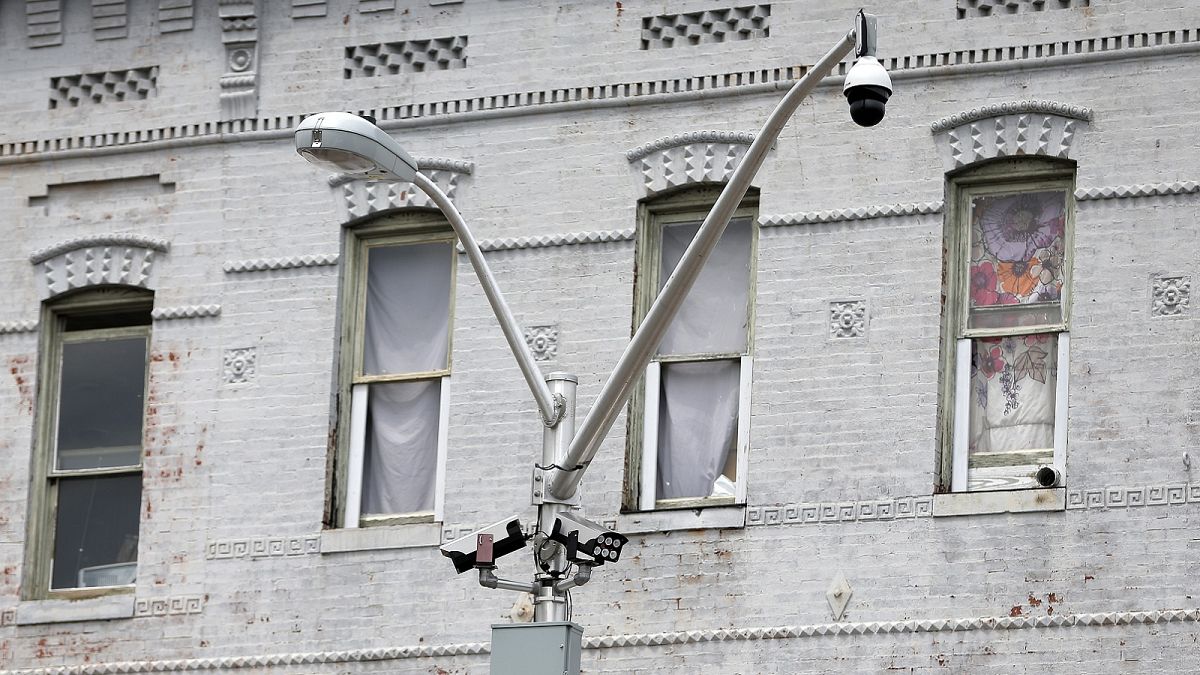Whether prompted by a health or security crisis, the adoption of exceptional state powers makes me worry that we are entering a new era in which our liberties are being whittled away under the guise of fighting another invisible enemy.
For most Europeans, a COVID-19 lockdown will have been their first experience of significant state intrusion in their lives. For those of us who have lived in places beset by terrorism, however, the restrictions of lockdown feel all too familiar. In the 1980s, my home region of the Basque Country in Spain was subject to constant attacks by ETA. My second lockdown was in Brussels, where I was living when at the time of the Bataclan attacks in 2015, and the third was in Barcelona in August 2017 where I was working metres away from Las Ramblas where the terrorist attack took place.
Seven weeks into my first public health lockdown, the similarities are too close for comfort.
Whether prompted by a health or security crisis, the adoption of exceptional state powers makes me worry that we are entering a new era in which our liberties are being whittled away under the guise of fighting another invisible enemy. In just weeks, we have witnessed the proposed use of intrusive surveillance technologies to track “patients.” Among the digital tracking measures adopted in Europe are CCTV networks equipped with facial recognition, experimental use of drones, and “health code” apps. Telecoms giants have also been asked to hand over metadata to governments and the EU Commission, while contact tracing apps have been recommended in the Commission’s road map to lifting COVID19 containment measures.
UN Special Rapporteur on the promotion and protection of human rights and fundamental freedoms while countering terrorism, Professor Fionnuala Ni Aolain, has sounded the alarm: “The security sector and private technology firms are offering services to states and telling them how this arsenal of counter-terrorism power and information put together in the aftermath of the 9/11 can be applied to the health sphere. This should be of real concern for all of us.”
To observers of European security affairs, this will feel unsurprising. The European “War on Terror” has, since 2015, been characterised by unprecedented state controls, surveillance expansion and overreach. Troubling measures adopted in Europe today are built on laws like the German arsenal of invasive surveillance laws, the dragnet law in the Netherlands and the UK Investigatory Powers Act.
Why are they relevant now, and how do they impact us all?
These powers enhance government intrusion into our private lives allowing intelligence services to spy on millions of ordinary citizens for operations that have nothing to do with terrorism. They treat the Internet as an extra-legal space, and allow the tapping of our digital communications through the hacking of people´s phones and computers. As stated by the United Nations and Council of Europe, weak state definitions of terrorism are being misused in Europe to persecute political dissident and investigative journalists.
There are some signs of the brakes being applied. In 2018, the European Union Court of Justice (CJEU) ruled that UK laws enabling mass digital surveillance are unlawful and violate our rights to privacy and freedom of expression. In January 2020, the advocate-general of the European tribunal instructed that terrorism surveillance laws in the UK, Belgium and France comply with EU privacy laws. And just this Tuesday, Germany's Constitutional Court ruled that the Federal Intelligence Service’s (BND) surveillance law adopted in 2016, which allowed it to conduct mass surveillance of global communications and internet traffic is unconstitutional and encroaches on the right to free press and privacy.
In the light of rapid technological change and biometric apps designed to limit the spread of coronavirus, we must remain vigilant to intrusive and ubiquitous technological surveillance.
States and tech giants must be reminded that the Common EU Toolbox for Member States stipulates that mobile contact tracing applications should firstly be voluntary, secondly use anonymised data, and thirdly, be dismantled as soon as they are no longer needed.
To ensure that new technologies fully comply with EU data and privacy protections across Europe, we must continue to examine controversial domestic legislation carefully. Policy must be guided by both public health and privacy rights to determine what kind of data is required, how it is used, and who should have access to it. Emergency and surveillance powers need to be clearly limited, publicly scrutinised, and safeguarded from state and corporate abuse. In the long-term, we must guard against “temporary” mass surveillance measures creeping into ordinary law, by including sunset provisions, for instance, that would require subsequent legislative renewal.
More generally, we need to disrupt the (often unquestioned) narrative that governments require intrusive powers to keep societies safe, while simultaneously promoting public understanding of the right to privacy. Digital tracking and mass surveillance are not panaceas; their efficacy has not been tested, nor has their impact been properly scrutinised by oversight bodies and by public health, data and right-to-privacy experts.
Above all, we must remember that privacy is a human right that forms the bedrock of a healthy democratic society governed by the rule of law. When lockdowns in Europe are over, we must ensure that health emergency powers work in the public interest and for the public good – and that intrusive state and corporate surveillance is not our new normal.
- Cristina Goñi is Regional Manager for Advocacy and Security Policy at the Open Society Initiative for Europe.
____________
Are you a recognised expert in your field? At Euronews, we believe all views matter. Contact us at view@euronews.com to send pitches or submissions and be part of the conversation.
